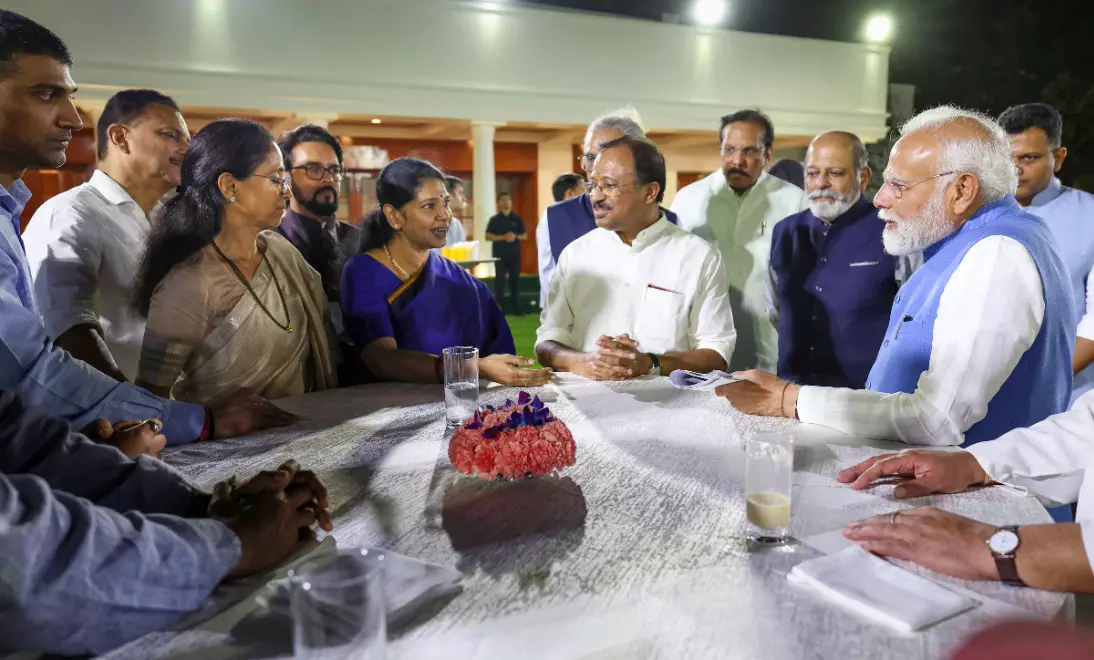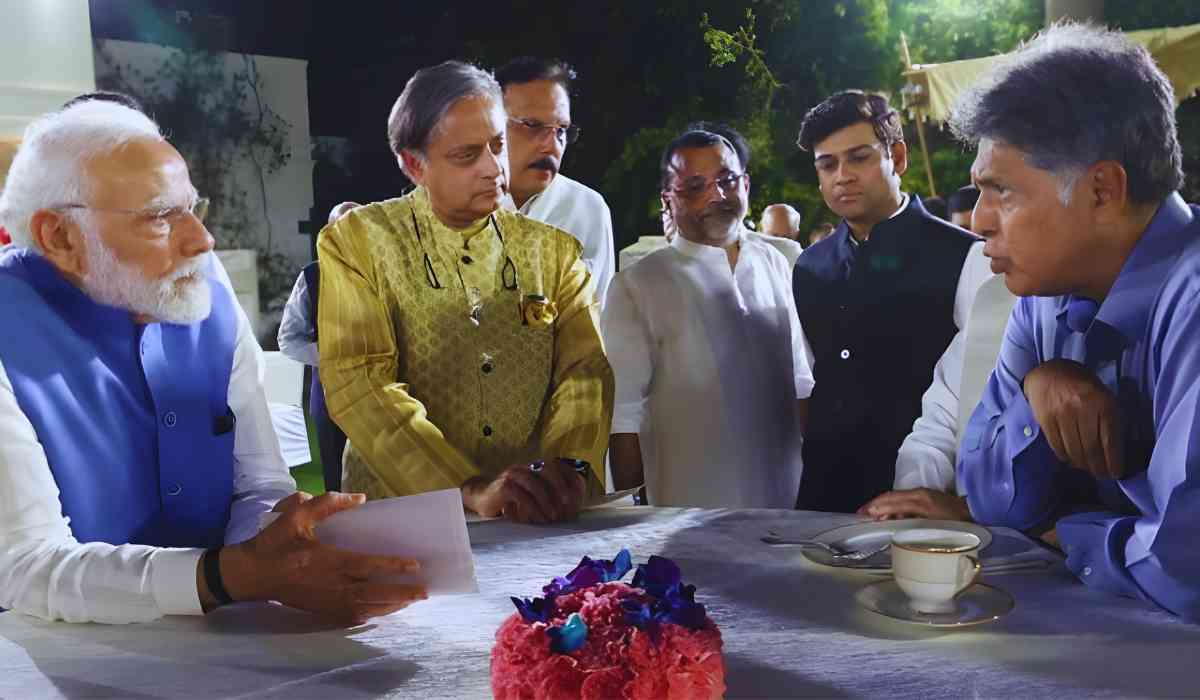In a world where nations are constantly communicating their views and concerns to each other, India has taken a unique step. Prime Minister Narendra Modi recently brought together all-party delegations to represent India’s stance on important global issues. This move is not just about politics—it’s about showing the world that India can speak with one voice, no matter which party is in power.
What Happened?
In the wake of Operation Sindoor—a military response to a terror attack in Pahalgam—India sent seven multi-party delegations to 33 countries. These delegations included lawmakers from all major political parties, former ambassadors, and other respected figures. Their mission: to explain India’s position on cross-border terrorism and advocate for global cooperation against terrorism.

Prime Minister Modi met these delegations after their return. He praised their efforts, saying he was proud of how they presented India’s voice to the world. The meeting, held at the PM’s official residence, was more than a formality. Delegation members shared their experiences and feedback from their international visits, and the Prime Minister listened carefully, especially to those from opposition parties.
_1749619298.png)
Why Multi-Party Delegations Matter
This approach is significant for several reasons:
-
Unity Across Parties: By including members from Congress, BJP, DMK, NCP, Shiv Sena, and others, India demonstrated that the fight against terrorism is above politics. It sent a strong message that the country stands united on critical issues, regardless of political differences.
-
Global Credibility: When leaders from different parties speak together, it boosts India’s credibility on the world stage. Foreign governments see that India’s stance is not just the view of one leader or party, but of the entire nation.
-
Effective Diplomacy: The delegations visited key countries like Italy, Brazil, Qatar, and South Africa, among others. They promoted India’s zero-tolerance policy on terrorism and called for action against those supporting terror, especially at global forums like the Financial Action Task Force (FATF).
A New Chapter in Indian Diplomacy
India’s foreign policy has always aimed to protect national interests and promote peace. In recent years, as India’s global influence has grown, so has its need to communicate clearly and consistently with the world. The use of multi-party delegations marks a shift towards more inclusive and representative diplomacy.

Prime Minister Modi has suggested that this model should become a regular feature of India’s international outreach. By institutionalizing such efforts, India can ensure that its voice is always strong and united, no matter the government in power.
What Delegates and Leaders Said
Leaders who participated in the delegations expressed gratitude for the chance to serve the nation. Congress leader Shashi Tharoor, who led the team to the Americas, thanked the Prime Minister for the opportunity and emphasized the importance of presenting a united front abroad.
_1749619474.png)
Delegation members reported that their message was well received in many countries, especially in the Gulf region, where India’s growing diplomatic ties have made a positive impact. The feedback from foreign leaders was encouraging, with many expressing support for India’s position against terrorism.
The Strengths and Challenges
While the initiative has been widely praised, it is important to look at both sides:
Strengths:
-
Promotes national unity on global issues.
-
Enhances India’s reputation as a responsible and mature democracy.
-
Encourages bipartisan cooperation in foreign policy.
Challenges:
-
Maintaining consensus among diverse political parties can be difficult, especially on sensitive issues.
-
The effectiveness of such delegations depends on the ability to keep domestic politics aside during international missions.
Final Note
The use of multi-party delegations to amplify India’s voice on global platforms is a bold and innovative step. It shows that India is willing to rise above political differences for the greater good of the nation. As India continues to grow as a global power, such efforts can help ensure that its message is heard loud and clear around the world—united, strong, and committed to peace.
_1749619452.png)
This approach not only strengthens India’s foreign policy but also sets an example for other democracies. It proves that when it comes to issues like terrorism and global security, unity is the best strategy.
With inputs from agencies
Image Source: Multiple agencies
© Copyright 2025. All Rights Reserved Powered by Vygr Media.






















